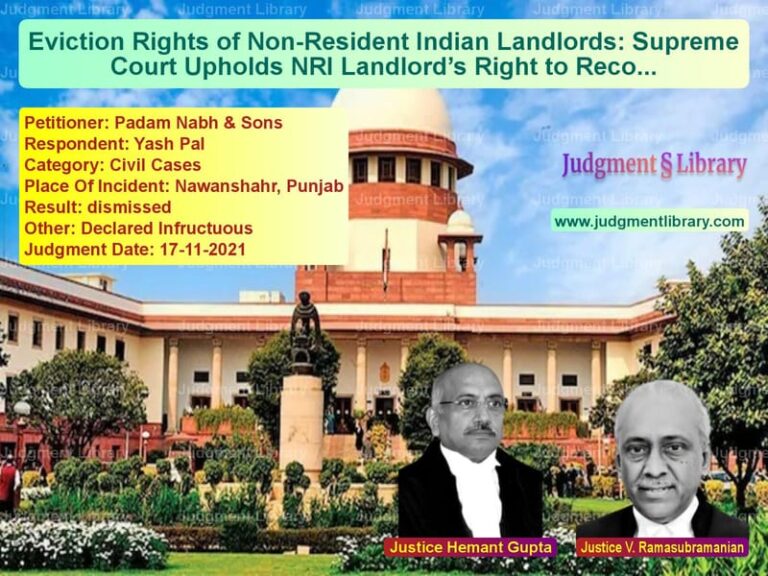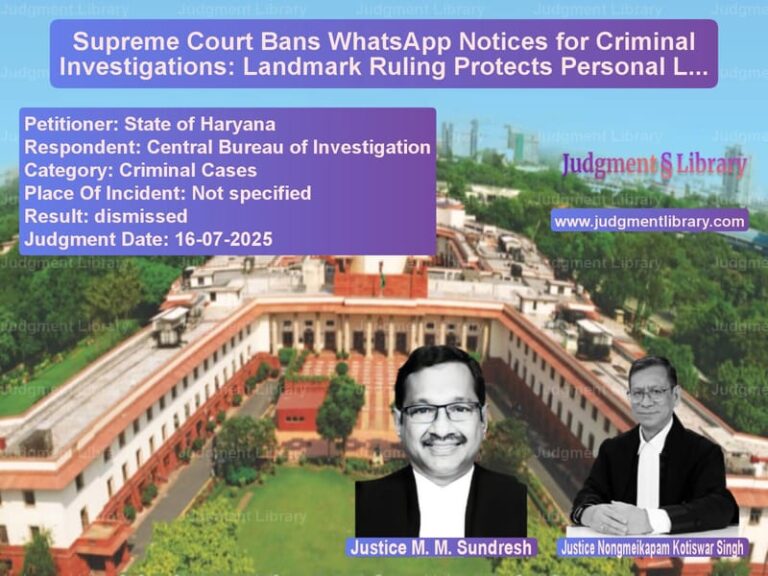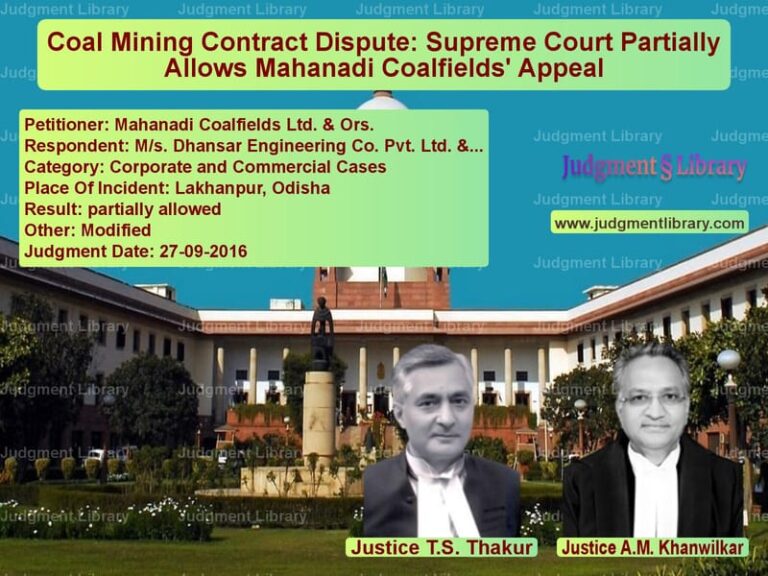Supreme Court Upholds Railway Protection Force’s Decision to Reject Candidate Over Language Mismatch
The case of Union of India & Ors. vs. Mahendra Singh is a significant ruling on recruitment procedures and the importance of following prescribed application guidelines. The Supreme Court, in its decision delivered by a bench comprising Hemant Gupta and Vikram Nath, set aside the Allahabad High Court’s judgment and upheld the Railway Protection Force’s (RPF) rejection of a candidate for failing to use the same language in both the application form and the answer sheet.
Background of the Case
The dispute arose when Mahendra Singh applied for a constable post in the Railway Protection Force (RPF) under Employment Notice No. 1/2011, which had 11,952 vacancies. The recruitment process required candidates to:
- Fill out the application form in either Hindi or English.
- Use the same language for writing a paragraph in the answer sheet.
- Submit a self-attested matriculation certificate.
Singh, belonging to the Other Backward Class (OBC) category, submitted his application in English but later used Hindi for writing the paragraph in the Optical Mark Recognition (OMR) answer sheet during the examination on June 23, 2013.
His signatures also differed—in English on the application form as “M S” and in Hindi on the answer sheet. The recruitment board found this discrepancy suspicious and referred the matter to a Government Examiner of Questioned Documents (GEQD) on September 2, 2014.
Legal Issues in the Case
- Was the rejection of Mahendra Singh’s candidature justified?
- Did the use of different languages raise a valid suspicion of impersonation?
- Did the Allahabad High Court exceed its jurisdiction by overriding the recruitment board’s decision?
- Were procedural guidelines regarding language choice in the recruitment advertisement binding?
Arguments by the Petitioner (Union of India)
- The use of different languages raised an issue of identity fraud.
- The GEQD report found inconsistencies between the handwriting samples.
- The recruitment advertisement explicitly required candidates to use the same language.
- With over 11,000 vacancies, uniform procedures were necessary to maintain fairness.
- The decision to reject Singh’s application was based on objective criteria and could not be reviewed by the High Court.
Arguments by the Respondent (Mahendra Singh)
- The use of Hindi in the answer sheet was an inadvertent mistake due to a two-year gap between applying and appearing for the test.
- The application form and answer sheet were filled by the same person, as confirmed by the GEQD.
- He had scored 73.32 marks—well above the OBC cut-off of 58.5—and his rejection was unfair.
- The language requirement was only procedural and should not result in disqualification.
- There was no explicit consequence stated for using different languages.
Supreme Court’s Observations
- The advertisement clearly mandated the use of the same language in both the application and examination.
- The instruction aimed to prevent impersonation and ensure the same person applied and took the test.
- It was not a mere irregularity but a fundamental requirement to maintain transparency.
- The Allahabad High Court had erred in treating the issue as a minor lapse.
- The recruitment board had followed a uniform and fair approach, and its decision should not have been interfered with.
The Court ruled:
“Since the writ petitioner has used different language for filling up of the application form and the OMR answer book, his candidature was rightly rejected by the appellants.”
Final Judgment
The Supreme Court issued the following directives:
- The order passed by the Allahabad High Court was set aside.
- Mahendra Singh’s candidature was rejected in accordance with recruitment rules.
- The RPF’s decision was upheld as fair and consistent with the selection process.
- The High Court’s reasoning was found to be flawed, as it did not appreciate the binding nature of procedural rules.
Implications of the Judgment
- The ruling reinforces the importance of adhering to recruitment guidelines.
- It establishes that procedural requirements in public job applications must be followed.
- The decision prevents fraudulent practices such as impersonation.
- The judgment upholds government authority in maintaining a fair selection process.
This landmark ruling ensures that public sector recruitment processes remain transparent and that candidates comply with prescribed requirements.
Petitioner Name: Union of India & Ors..Respondent Name: Mahendra Singh.Judgment By: Justice Hemant Gupta, Justice Vikram Nath.Place Of Incident: Allahabad, Uttar Pradesh.Judgment Date: 24-07-2022.
Don’t miss out on the full details! Download the complete judgment in PDF format below and gain valuable insights instantly!
Download Judgment: union-of-india-&-ors-vs-mahendra-singh-supreme-court-of-india-judgment-dated-24-07-2022.pdf
Directly Download Judgment: Directly download this Judgment
See all petitions in Recruitment Policies
See all petitions in Public Sector Employees
See all petitions in Judgment by Hemant Gupta
See all petitions in Judgment by Vikram Nath
See all petitions in allowed
See all petitions in Quashed
See all petitions in supreme court of India judgments July 2022
See all petitions in 2022 judgments
See all posts in Service Matters Category
See all allowed petitions in Service Matters Category
See all Dismissed petitions in Service Matters Category
See all partially allowed petitions in Service Matters Category







